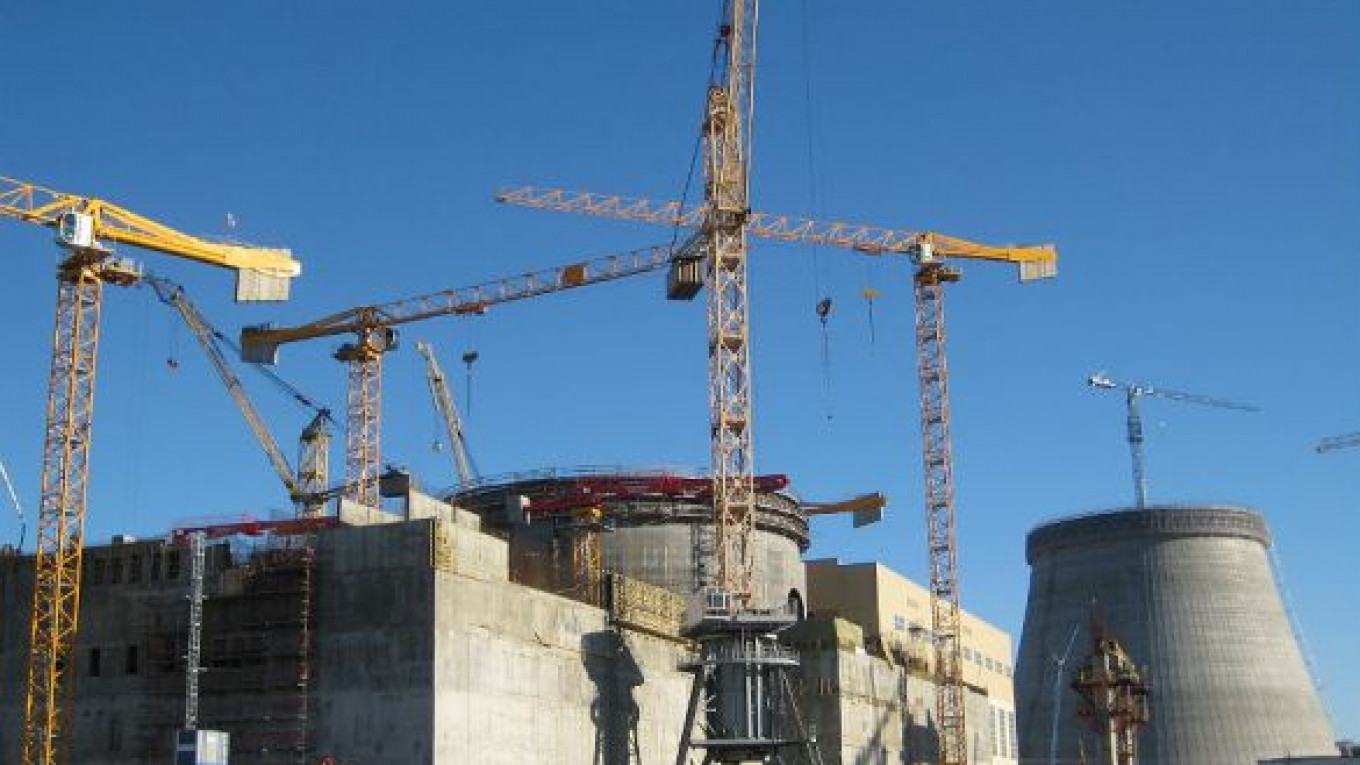An ambitious export drive by Russia's nuclear reactor corporation is being hamstrung by dated Soviet-style secrecy rules, foreign executives at the company say.
Rosatom has hired a former Finnish nuclear regulator, Jukka Laaksonen, to be the face of Russian nuclear energy abroad and a guarantor of safety.
But in a throwback to Soviet secrecy rules, Laaksonen and two other new foreign vice presidents are barred from working out of its Moscow headquarters, a hulking colonnaded building that housed the Soviet Union's atomic ministry in the 1950s.
Before Rosatom's export branch, Rusatom Overseas, moved to its own offices, its Czech vice president, Leos Tomicek, often worked in a cafe across the street, a company spokesman said.
Tomicek and Laaksonen say strict internal commercial secrecy rules prevent the Russian state firm from advertising its latest technology and are the biggest obstacle to Russia's ambitions to triple sales by 2030.
"You cannot sell something in a black box," said Laaksonen, who joined Rusatom Overseas almost two years ago.
"The legislation is old, and the culture is old. This is very helpful for all our competitors."
The Russian nuclear industry has won recent sales by offering full-package deals for nuclear newcomers such as Vietnam, Turkey, China and Bangladesh.
This was made possible by a consolidation of the industry under Rosatom's chief Sergei Kiriyenko, who was Russia's youngest-ever prime minister under President Boris Yeltsin.
Rosatom now controls all facets of the business from uranium mining to fuel enrichment and grid development.
Backed by President Vladimir Putin, it is now building more nuclear plants worldwide than any other vendor, bidding for most major tenders, and plans to open 20 marketing offices.
The nuclear giant, which is building 19 reactors outside of Russia, this month said its foreign orders portfolio was worth $66.5 billion in 2012, up 30 percent from a year earlier. It aims to have orders for 30 reactors abroad by 2030.
But Russia will fail to sell reactors to the European Union and other markets with nuclear know-how, unless it scraps rules preventing it from supplying the level of details on its reactor designs that such clients and regulators demand, Laaksonen said.
"Inexperienced customers, who do not know that much about nuclear power, cannot ask as much," he said in an interview in an office still largely empty of furnishings, where Rosatom's export branch is newly based.
The headquarters of Rosatom itself, which runs military and civilian nuclear programs, is guarded by state police and foreigners are allowed only in a conference room used for negotiations.
Powering Europe
The commercial secrecy rules have hurt Russia's bid to build new reactors live at the Czech Republic's Temelin plant, Laaksonen said.
The deal, worth more than $10 billion, is seen as a pivotal test of the technology's future on the continent.? Rosatom's marketing and engineering subsidiaries abroad — Rusatom Overseas and Astomstroyexport — are competing against Westinghouse, a U.S. unit of Japan's Toshiba.
The rules could also make it difficult for Rosatom to license its VVER reactor in Britain with a view to build it at a British site, Laaksonen said.,
"It is not enough to have the world's best plants, if you cannot tell how good you are and how are your plants," he said.
He pointed to a fold-out diagram of the VVER reactor, torn from an international nuclear engineering magazine and tacked to an otherwise bare wall, as being no more detailed than most of the written information the company provides to potential clients.
A spokesman for Rosatom told Reuters that Laaksonen's appeals were not falling on deaf ears within the company.
"That is one of the reasons highly-qualified foreigners were invited, so they can help us understand what Rosatom or Rusatom Overseas can improve to be more competitive, especially in talks with Western European partners," spokesman Sergei Novikov said.
Safety technology in the industry is of paramount importance to sales, two years on from the reactor meltdown at Japan's Fukushima plant after it had been hit by a tsunami.
Russia is marketing the legacy of the Soviet Union's own nuclear disaster at Chernobyl in 1986 as a lesson learned in safety.
It boasts that the Russian-built VVER-1000 reactors in China at Tianwan are the first world's first to feature a core-catcher safety net, invented by Russian engineers after Chernobyl, to prevent a melting reactor from sinking into the ground.
In addition to electricity-powered safety systems, Rosatom promotes "passive safety" designs, relying on gravity and natural water convection flows to cool the core in an emergency.
Tomicek, an engineer who worked on the construction of the original Temelin plant, joined Rosatom in 2011 and is now pushing Russia's bid to extend the plant.
He is also involved in tender talks for potential reactor sales to Jordan, Slovakia, Hungary and Finland, and said Rosatom is eyeing new projects in Brazil, Malaysia and South Africa.
Milko Kovachev, a former Bulgarian Energy Minister, is the third foreigner to join Rusatom Overseas as a vice president.
A Message from The Moscow Times:
Dear readers,
We are facing unprecedented challenges. Russia's Prosecutor General's Office has designated The Moscow Times as an "undesirable" organization, criminalizing our work and putting our staff at risk of prosecution. This follows our earlier unjust labeling as a "foreign agent."
These actions are direct attempts to silence independent journalism in Russia. The authorities claim our work "discredits the decisions of the Russian leadership." We see things differently: we strive to provide accurate, unbiased reporting on Russia.
We, the journalists of The Moscow Times, refuse to be silenced. But to continue our work, we need your help.
Your support, no matter how small, makes a world of difference. If you can, please support us monthly starting from just $2. It's quick to set up, and every contribution makes a significant impact.
By supporting The Moscow Times, you're defending open, independent journalism in the face of repression. Thank you for standing with us.
Remind me later.


